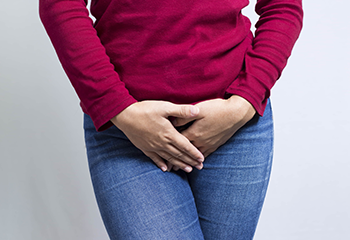Vaginal discharge
Vaginal discharge is a normal occurrence in women as part of the self-cleaning mechanism of the vagina. The inner wall of the vagina is made up of cells that produce mucus. Due to certain circumstances, the normal amount of vaginal discharge may increase. This can be unpleasant.
What could be the cause of increased vaginal discharge?
Factors that may disrupt normal vaginal acidity are, i.e. diabetes, use of antibiotics, poor hygiene or excessive washing of the vagina, use of soap to wash the inside of the vagina, and infections from the outside. Chronic and increased, malodorous vaginal discharge that is not responding to antibiotic therapy can indicate the beginning of cervical cancer.
What is discharge analysis?
Discharge analysis is a vaginal investigation into the cause of excessive or disruptive discharge. An investigation can help to discover whether the vagina or cervix is inflamed. This inflammation can be remedied. Before the discharge analysis is done, the nurse will first ask some questions, such as, what are your symptoms, how long have you had these symptoms and have you been treated? Which contraceptive method do you use, what medications do you use, when was your last period.

When is a discharge analysis recommended?
It is recommended to have an examination when vaginal discharge:
- is grainy, slimy, foamy and thick
- is excessive
- is itching
- smells unpleasant
- has an unusual color (bloody, yellowish, greenish etc.)
Which microorganisms can be detected during the examination at Stichting Lobi?
During the examination the clinic service providers, doctors and/ or nurses may find Candida albicans, Trichomoniasis and bacterial infections.
What to expect during the investigation?
A trained nurse or doctor inserts a speculum into the vagina. The vagina and the cervix are inspected, and some discharge is taken from the vagina. The discharge sample is viewed under a microscope to screen for the presence of micro-organisms.
For women a are still in virginity, a spatula is used, to take a sample of discharge from the vagina.
Is the examination painful?
No, but inserting the speculum may cause a little discomfort if you are tense. The examination may hurt a little if there is an existing painful inflammation, you may experience some itching or tingling when the sample is taken.

Confidentiality!
As with all the services that Stichting Lobi offers, vaginal discharge analysis is a private matter. Confidentiality of all staff is guaranteed and you may feel comfortable and at ease.
Diagnosis
The diagnosis is usually made on the basis of
- The interview.
- The vaginal examination.
- The microscopic examination of the discharge (which is performed by a lab analyst.
Test result
The advantage of the discharge analysis is that the doctor of nurse can see right away if there is inflammation in the vagina and what might be a possible cause. Your result is available within 30 minutes after testing.
What if the test result indicates one of the before, mentioned infections?
You can consult the doctor at Stichting Lobi, or you can also discuss the test result with your own doctor.
Therapy
If the discharge is normal it does not require any further treatment. However, vaginal discharge which is accompanied, with an infection must be treated immediately. If it is Trichomoniasis (this is a sexually transmitted disease) your (sex) partner should also be treated.
Please note!
- If you are using antibiotics and/or vaginal cream or vaginal suppositories, the result may NOT be reliable because they can influence the test result. (Two weeks after you have stopped taking antibiotics is okay to have the test).
- Discharge analysis is not a sexually transmitted infection test, nor an HIV test. If you think that you may have been at risk, it is recommended to take an HIV test or a specific SOA test (gonorrhea or chlamydia example)
- You may not wash the inside of the vagina with soap.It is enough to rinse off the genital in the shower with (lukewarm) water and dabbing to dry.
- Vaginal lavages and -deodorant can irritate the vagina and are therefore not recommended.
- Always wipe yourself from front to back after bowel movements.
- Avoid using nylon underwear and panty liners, to prevent a warm environment in the vagina, where fungi and bacteria feel at home and to prevent the discharge from becoming worse.
- Try not to scratch when you feel itchy. The fragile tissue surrounding the vagina can damage easily.
- Intercourse while the vagina is still dry, can irritate the mucous membrane. Allow first, for the vagina to become moist or use a lubricant during sex.
- Use a condom if you do not always have sex with the same partner, in order to prevent a sexually transmitted disease.


